21st Orphan Drugs and Rare Diseases Global Congress 2024 Europe
Innovative programmes to optimize access in a global healthcare market
Day 1 - Thursday 11th April 2024
- Auditorium 1
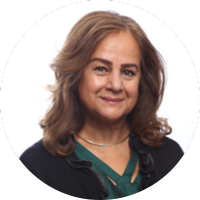 Dr. Femida Gwadry-Sridhar, Founder and CEO Pulse infoframe Inc.
Dr. Femida Gwadry-Sridhar, Founder and CEO Pulse infoframe Inc.
MACRO OUTLOOK AND CURRENT TRENDS
- Scene setting on rare disease – definitions and unmet need
- Progress in last decades – melting the iceberg of need?
- Introducing the Health Equity agenda in life sciences
- Evolution of Health Equity space – patient representation, expert patients, patient organisations, engagement platforms, differentiation, and articulation within the protected characteristic space
- Health Equity and Rare Disease – aspects of a Ven diagram?
- Thought/discussion points for conference.
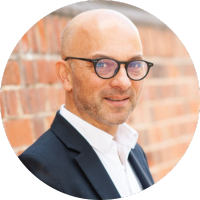 Dr Usman Khan, Chair, Motor Neurone Disease (MND) Association
Dr Usman Khan, Chair, Motor Neurone Disease (MND) Association
- The total burden of rare disease, which affects not only patients, but their caregivers, family members, and society as a whole.
- Addressing major logistical and regulatory issues due to minimal clinical research centers and sufficient expertise.
- Special consideration and flexibility to ensure that vulnerable patients with rare diseases have a sustained pathway to access
- What challenges still remain to increased equity for people living with a rare disease and their families?
Moderator:
 Dr. Femida Gwadry-Sridhar, Founder and CEO, Pulse infoframe Inc.
Dr. Femida Gwadry-Sridhar, Founder and CEO, Pulse infoframe Inc.
Panelists:
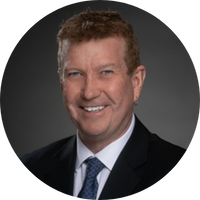 David Pearce, President, Innovation & Research, Sanford Health
David Pearce, President, Innovation & Research, Sanford Health
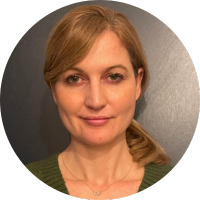 Melanie Dixon, Trustee, Cure DHDDS
Melanie Dixon, Trustee, Cure DHDDS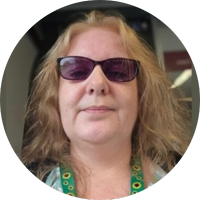 Carole Scrafton, Director & Co-Founder, Flutters and Strutters
Carole Scrafton, Director & Co-Founder, Flutters and Strutters
 Dr Usman Khan, Chair, Motor Neurone Disease (MND) Association
Dr Usman Khan, Chair, Motor Neurone Disease (MND) Association
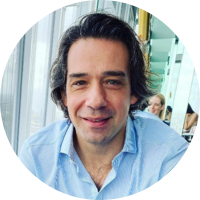 Dan Lewi, Head of Business Development and Patient Advocacy , Pulse infoframe Inc.
Dan Lewi, Head of Business Development and Patient Advocacy , Pulse infoframe Inc.
- Beyond Data and Strategic HTA Submission Tactics
- Harnessing Community Insights for Better Launch Planning
- Developing Sustainable Go-to-Market Approaches for Orphan Medicines
- Building an Ecosystem of Collaboration to Drive Health-System Change
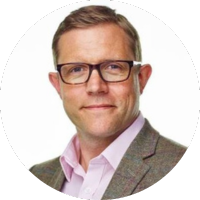 Owen Marks, Head of Rare Diseases and Diversity and Inclusion Co-Chair, Pfizer
Owen Marks, Head of Rare Diseases and Diversity and Inclusion Co-Chair, Pfizer
- The European Parliament is currently reviewing the Pharmaceutical Package, which will potentially be voted on in April – this new text will outline the incentive and regulatory ecosystem for OMP developers. This will be a major milestone in the legislative review.
- The outcomes of these discussions will shape the landscape for OMP developers in the EU for the next 20 years.
- Reflect on the changes taking place outside the scope of the legislative framework, including the role of PPP and ERNs
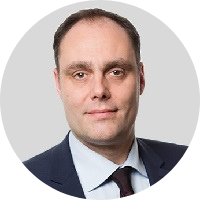 Alexander Natz, Secretary General, EUCOPE
Alexander Natz, Secretary General, EUCOPE
- Understanding the necessity of partnering with the patient community from the start
- Elevating the patient voice – the UCB experience in gMG
- The role of real-life experience in changing the treatment paradigm
- Innovation approaches in evaluating new medicines for rare diseases
- The importance of building rare capabilities within a company to support launch
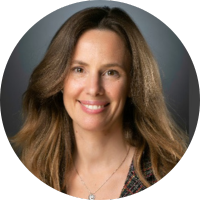 Manuela Maronati, Head of Europe, Rare Disease Organization, UCB
Manuela Maronati, Head of Europe, Rare Disease Organization, UCB
- This presentation will focus on the role of RWD in natural history and patient registries.
- How data can be utilized to help inform study design
- The use of RWD as an external control and to find eligible patients for trials
- Using RWD with prior clinical trial data to better understand patient outcomes.
 Dr. Femida Gwadry-Sridhar, Founder and CEO, Pulse infoframe Inc.
Dr. Femida Gwadry-Sridhar, Founder and CEO, Pulse infoframe Inc.

RESEARCH & DEVELOPMENT
- The role that patient networks can play in improving diagnosis, clinical trial recruitment and retention.
- The need to stop thinking of communities as being ‘hard to reach’ and appreciate that some services are ‘hard to access’.
- Overcoming barriers and striving for equity.
- Allowing ourselves to be vulnerable and reflecting on our own practices and organisational culture.
- Developing inclusive and accessible services and support.
- Including the voices of people who often go unheard – involving and engaging with people from diverse and marginalised communities.
- Learning from people with lived experience.
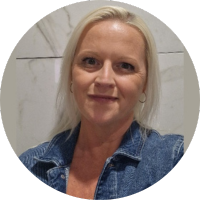 Kerry Leeson-Beevers, Chief Executive, Alström Syndrome UK
Kerry Leeson-Beevers, Chief Executive, Alström Syndrome UK
- How to collaborate with academic, industry, and patient advocate stakeholders
- Hot topics in rare diseases
- Future of therapeutic development for rare diseases
 David Pearce, President, Innovation, Research, & World Clinic Sanford Health
David Pearce, President, Innovation, Research, & World Clinic Sanford Health
- Determining accurate patient population estimates for rare diseases is critical at all stages of drug development, from R&D through to securing orphan drug status and commercialisation.
- Standard methods pose significant limitations due to the paucity of data, which presents risks to decision-making processes.
- The availability of genetic databases has enabled a new “bottom-up” approach to establishing accurate data on patient populations, and mitigating such risks.
- This presentation will discuss these new methods and how they are being applied.
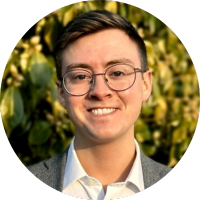 Joshua Card-Gowers, Senior Evidence Lead, HealthLumen
Joshua Card-Gowers, Senior Evidence Lead, HealthLumen
- Receiving a diagnosis – the start of our journey.
- Reaching out to the scientific community and searching for patients.
- Planning our strategy in how best to tackle this ultra rare disease.
- Problems encountered along the way.
- Our hopes for the future.
 Melanie Dixon, Trustee, Cure DHDDS
Melanie Dixon, Trustee, Cure DHDDS
The AKU Society successfully led the 10 year development programme of the drug nitisinone for the ultra rare genetic disease Alkaptonuria (AKU, or Black Bone Disease). But we are now learning that the disease is even more serious than originally thought and that limiting the drug’s side effects requires a strict low protein diet.
That’s why the AKU Society has launched its own drug discovery and development programme that it is funding at the University of Liverpool in order to develop new drugs that will resolve these issues. Find out at our talk what challenges face patient groups carrying out their own drug discovery programme and how to overcome these.
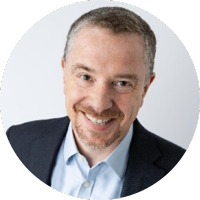 Nick Sireau, PhD, Chair and CEO, AKU Society
Nick Sireau, PhD, Chair and CEO, AKU Society
- Overview of current methods for their prevention, diagnosis, and treatment.
- Strengths and limitation of current development pathways for new drugs, medical devices, and biologics for rare diseases
- Special challenges that rare diseases create for research and product regulation
- Current public policies relevant to product development for rare diseases
Moderator:
 David Pearce, President, Innovation & Research, Sanford Health
David Pearce, President, Innovation & Research, Sanford Health
Panelist: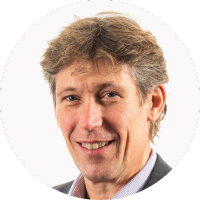 Anthony Hall, Chief Medical Officer, Healx
Anthony Hall, Chief Medical Officer, Healx
 Nick Sireau, PhD, Chair and CEO, AKU Society
Nick Sireau, PhD, Chair and CEO, AKU Society
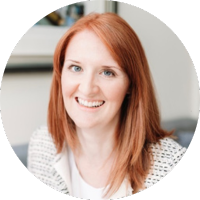 Dr. Harriet Holme, Chair and Founder, PCDResearch.org
Dr. Harriet Holme, Chair and Founder, PCDResearch.org
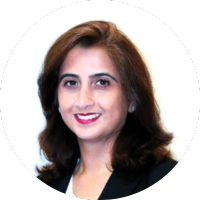 Surabhi Verma, Chief Medical Officer, Leadiant Biosciences
Surabhi Verma, Chief Medical Officer, Leadiant Biosciences
 Dr. Femida Gwadry-Sridhar, Founder and CEO, Pulse infoframe Inc.
Dr. Femida Gwadry-Sridhar, Founder and CEO, Pulse infoframe Inc.
